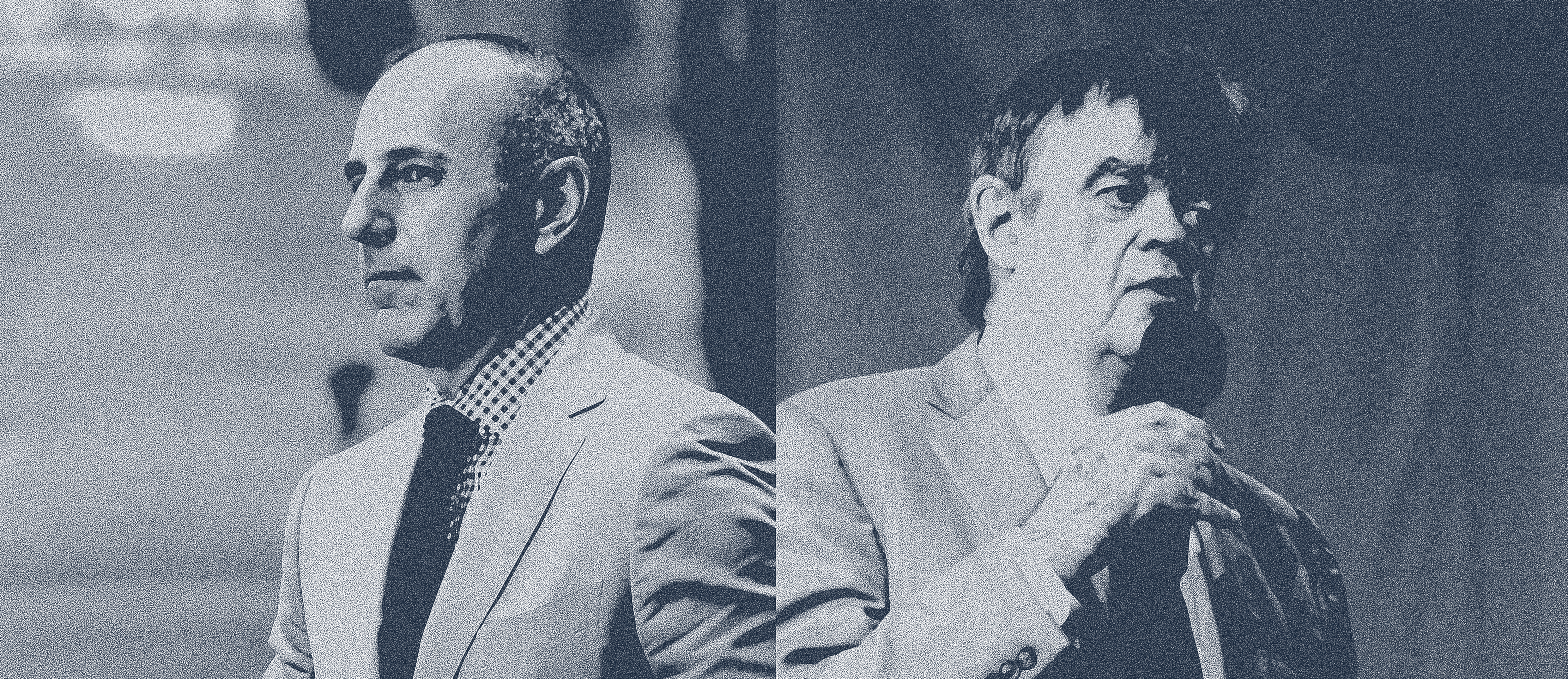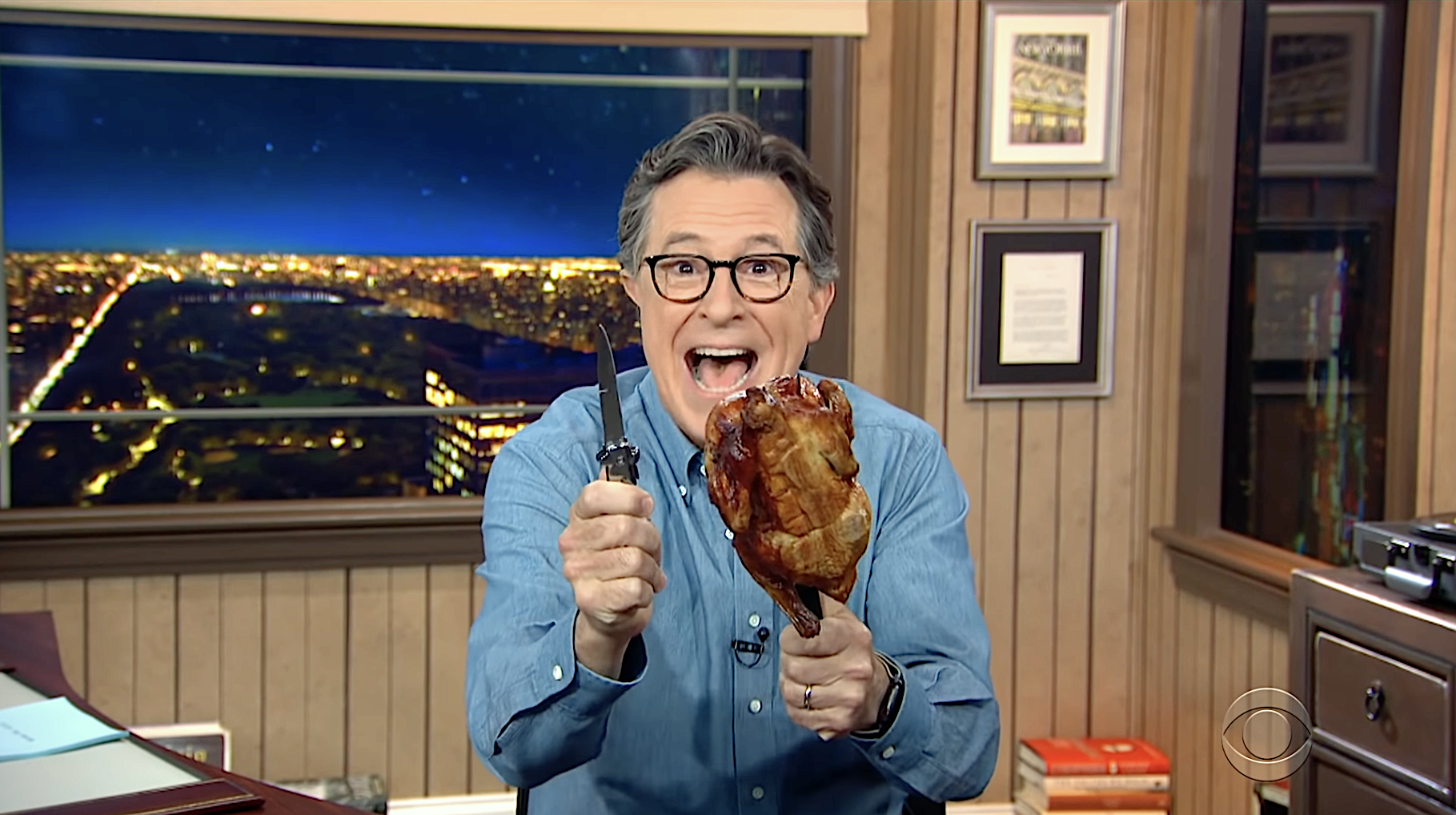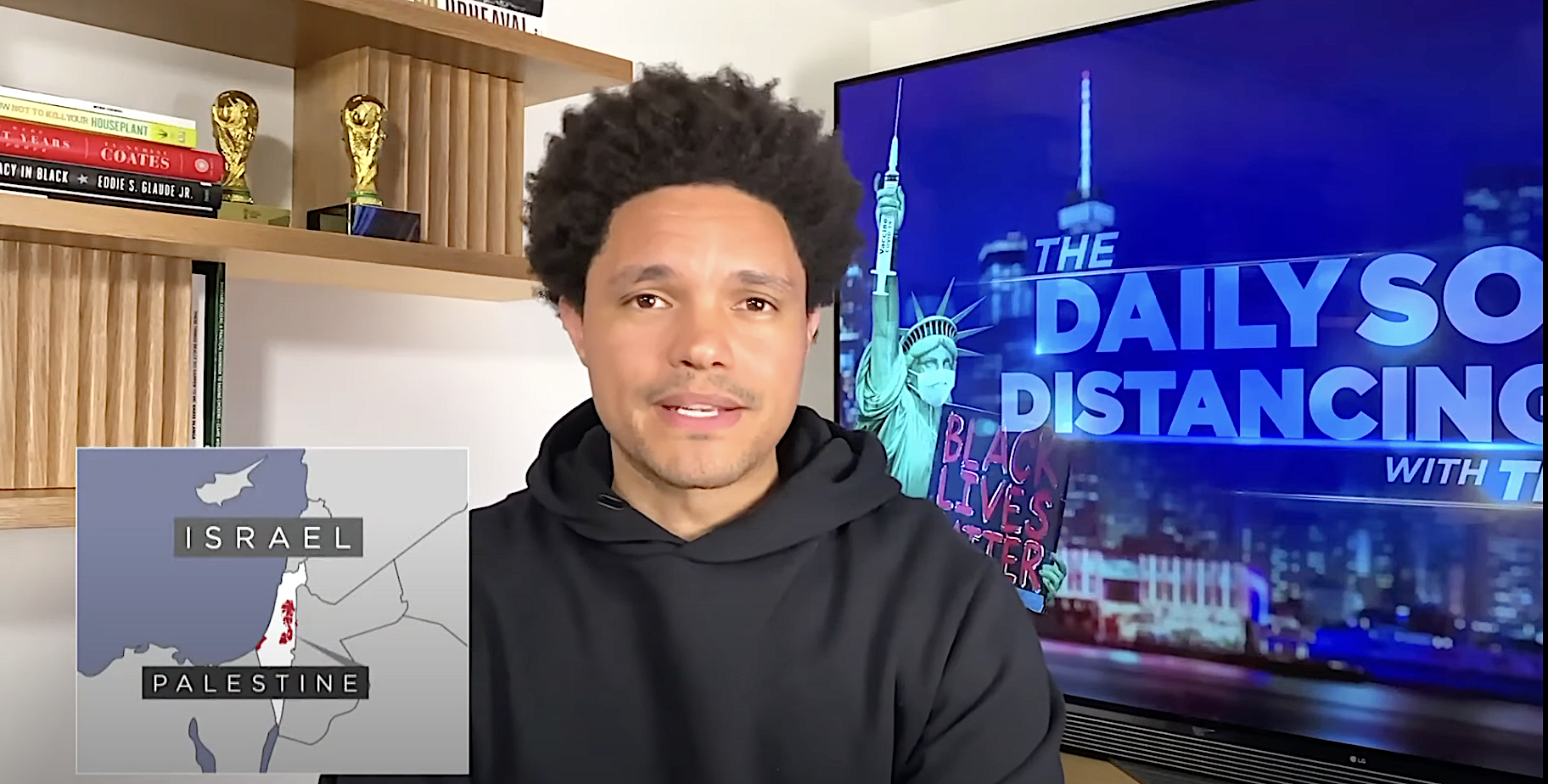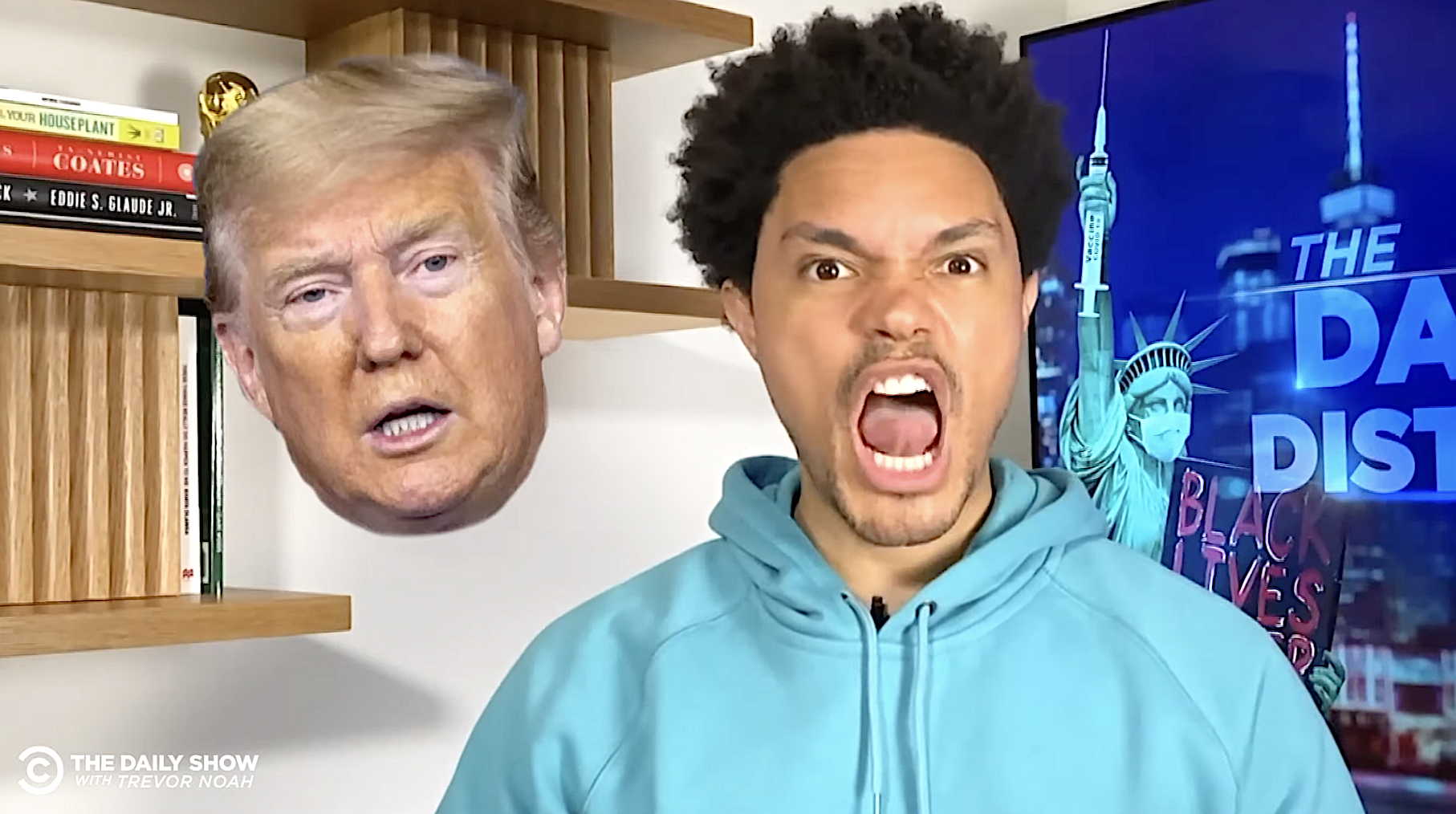Matt Lauer and Garrison Keillor were fired before we knew why. Good.
The "trial by media" has been essential in getting corporations to take sexual harassment as seriously as they claim to


A free daily email with the biggest news stories of the day – and the best features from TheWeek.com
You are now subscribed
Your newsletter sign-up was successful
Wednesday's news that Today's Matt Lauer, NPR chief news editor David Sweeney, and A Prairie Home Companion creator Garrison Keillor were all let go by their respective employers due to allegations of sexual misconduct might have felt like the familiar muck. This ugly drumbeat of revelations has a recognizable rhythm by now: Women come forward, journalists investigate, newspapers publish the accounts they deem credible, Twitter reels, the public figure reacts, and his employer (or professional network) belatedly responds.
And yet, what happened on Wednesday — even if it seemed of a piece with all that came before — was genuinely different. Dramatically so. Instead of going through the much-derided "trial by media," Lauer and Keillor's alleged targets reported these men to their companies. The companies responded by investigating and firing them. Only after these things were done did we, the public, find out about any of it.
This is new. And it might be a huge step forward.
The Week
Escape your echo chamber. Get the facts behind the news, plus analysis from multiple perspectives.

Sign up for The Week's Free Newsletters
From our morning news briefing to a weekly Good News Newsletter, get the best of The Week delivered directly to your inbox.
From our morning news briefing to a weekly Good News Newsletter, get the best of The Week delivered directly to your inbox.
This sequence of events is noteworthy both because it's exceptional and because it shouldn't be. Employees are supposed to be able to go to HR if someone is creating a hostile work environment. That it clearly hasn't worked in so long — that HR, and the entire apparatus intended to shield people from workplace harassment, failed — has meant that victims of sexual harassment have had to go to the press for their grievances to gain any traction. Variety's Maureen Ryan put it best:
So what happened? Is NBC's statement — which implies it had no idea Lauer ever did anything untoward, but gathered from the recent complaint that more allegations were coming — believable? Not particularly. In its exhaustive investigation (published after Lauer's firing became public), Variety noted:
Several women told Variety they complained to executives at the network about Lauer's behavior, which fell on deaf ears given the lucrative advertising surrounding Today. NBC declined to comment. For most of Lauer's tenure at Today, the morning news show was No. 1 in the ratings, and executives were eager to keep him happy. [Variety]
Clearly, this is not a situation where NBC did the right thing the minute it became aware of the issue. Indeed, it's very plausible that NBC knew Variety was going to publish its investigation on Lauer, and fired him to get ahead of the news.
But that this new pattern for handling allegations of sexual misconduct — companies pre-empting the "trial by media" and just firing the men in question — emerged at three different workplaces on the same day suggests that some institutions are actually changing. Maybe HR has teeth again? Maybe women are going to their workplaces and getting a proper hearing? If so, one thing is clear: This development wouldn't have come about without the massive public outcry journalists made possible. The "trial by media" has been essential in getting corporations to take sexual harassment as seriously as they claim to.
A free daily email with the biggest news stories of the day – and the best features from TheWeek.com
Companies dealing promptly and proactively with sexual malfeasance would constitute a major development, because — as I wrote here — a long-term solution to rampant harassment requires something better than the current solution, which has meted out consequences based largely on public outcry (and the accused party's notoriety).
Alas, there's no progress without complication, and here's where this particular trend gets messy: The portion of the public that cares about this stuff isn't used to companies actually dealing with sexual misconduct internally. We understand that companies act in their own self-interest; that means that a fair outcome is almost unthinkable when it comes to cases like these. We expect them to either bury the charges or drop the predator, depending on what most protects their brand.
If that cynical mode gets a lot of things right, it also has unforeseen consequences. For instance, the minute Lauer and Keillor's firings were announced, the fact that the matter was dealt with internally — meaning details were withheld — made everybody really want to know them. What had these men done? Did they deserve to lose their jobs, or was this just another instance of the "panic" skeptics keep gloomily diagnosing (even when they admit that each individual case of a famous man losing his job seems justified)? The conversation so far has been driven by women disclosing what men have done to them — and public outcry supplying the outrage their employers wouldn't. Absent that ritual of confession and support, can the public really approve of the consequences? TELL US, WOMEN: WHAT DID THEY DO TO YOU, THAT WE MAY OPINE?
Ours is a public nervous about the outcomes its own outcry has produced. That's unfortunate, but it makes so much sense it hurts. We don't talk enough about how disorienting this all is. One of the weirder aspects of this moment in American history is that the Overton window — the range of ideas it's acceptable to publicly debate — didn't just shift, it shattered. Powerful men who have spent decades harassing women with impunity are suddenly seeing consequences.
This is a recipe for whiplash and double-takes. How could we not wonder whether our concerns are overblown? Our demands unreasonable?
I tend to think that the way NBC, NPR, and MPR handled yesterday's firings bodes well for victims who can't depend on fame to drive their harassers' fates; I also tend to think that victims of sexual harassment shouldn't have to share their experience with thousands of curious strangers. But I want to be honest about my own confusion: I don't know the answers to these questions. Add them to the long and growing list of questions we need to address, and soon.
Lili Loofbourow is the culture critic at TheWeek.com. She's also a special correspondent for the Los Angeles Review of Books and an editor for Beyond Criticism, a Bloomsbury Academic series dedicated to formally experimental criticism. Her writing has appeared in a variety of venues including The Guardian, Salon, The New York Times Magazine, The New Republic, and Slate.
-
 The ‘ravenous’ demand for Cornish minerals
The ‘ravenous’ demand for Cornish mineralsUnder the Radar Growing need for critical minerals to power tech has intensified ‘appetite’ for lithium, which could be a ‘huge boon’ for local economy
-
 Why are election experts taking Trump’s midterm threats seriously?
Why are election experts taking Trump’s midterm threats seriously?IN THE SPOTLIGHT As the president muses about polling place deployments and a centralized electoral system aimed at one-party control, lawmakers are taking this administration at its word
-
 ‘Restaurateurs have become millionaires’
‘Restaurateurs have become millionaires’Instant Opinion Opinion, comment and editorials of the day
-
 A peek inside Europe’s luxury new sleeper bus
A peek inside Europe’s luxury new sleeper busThe Week Recommends Overnight service with stops across Switzerland and the Netherlands promises a comfortable no-fly adventure
-
 A long weekend in Zürich
A long weekend in ZürichThe Week Recommends The vibrant Swiss city is far more than just a banking hub
-
 Late night hosts lightly try to square the GOP's Liz Cheney purge with its avowed hatred of 'cancel culture'
Late night hosts lightly try to square the GOP's Liz Cheney purge with its avowed hatred of 'cancel culture'Speed Read
-
 Late night hosts survey the creative ways America is encouraging COVID-19 vaccinations, cure 'Foxitis'
Late night hosts survey the creative ways America is encouraging COVID-19 vaccinations, cure 'Foxitis'Speed Read
-
 The Daily Show's Trevor Noah carefully steps through the Israel-Palestine minefield to an 'honest question'
The Daily Show's Trevor Noah carefully steps through the Israel-Palestine minefield to an 'honest question'Speed Read
-
 Late night hosts roast Medina Spirit's juicing scandal, 'cancel culture,' and Trump calling a horse a 'junky'
Late night hosts roast Medina Spirit's juicing scandal, 'cancel culture,' and Trump calling a horse a 'junky'Speed Read
-
 John Oliver tries to explain Black hair to fellow white people
John Oliver tries to explain Black hair to fellow white peopleSpeed Read
-
 Late night hosts explain the Trump GOP's Liz Cheney purge, mock Caitlyn Jenner's hangar pains
Late night hosts explain the Trump GOP's Liz Cheney purge, mock Caitlyn Jenner's hangar painsSpeed Read
